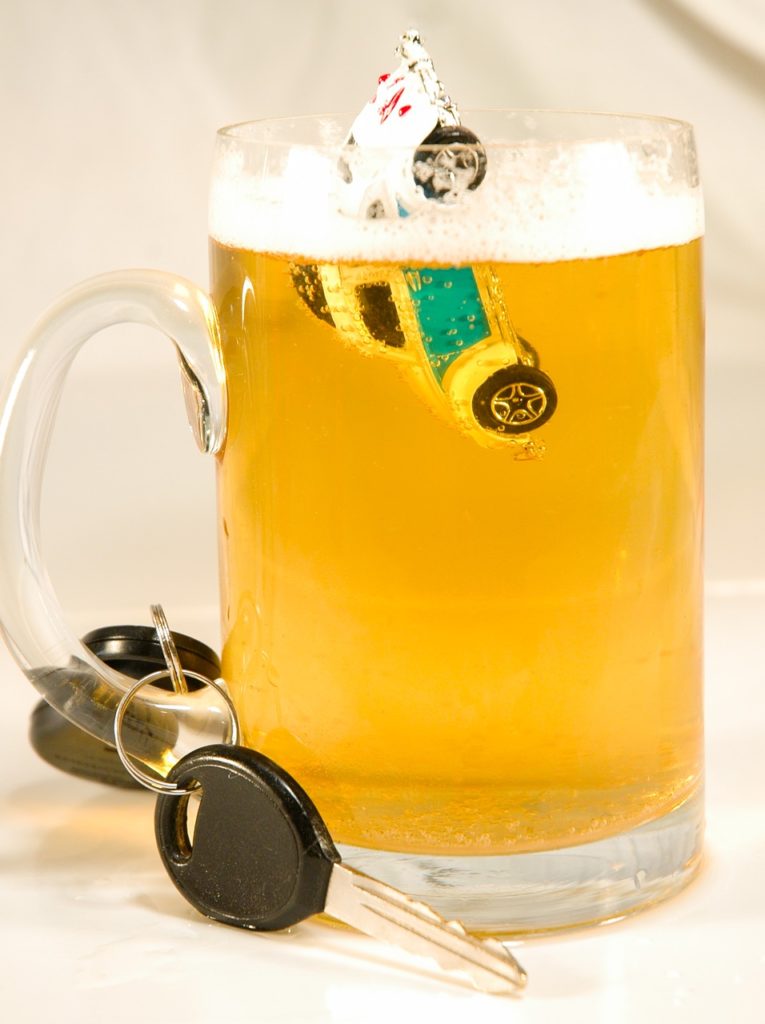Driving under the influence, or DUI for short is one of the most common criminal offenses in the US. According to data from the Department of Justice, more than 1 million people are arrested each year for DUI violations.
Having a criminal record can be problematic, to say the least. A momentary lapse in judgment could have far-reaching implications on your ability to get adequate housing, secure a job with a prospective employer, get college admission, enjoy competitive rates on loans and insurance premiums… essentially anything that would require a background check, which usually involves a criminal record check.
This begs the question: How long does a DUI stay on your record? Can you get it expunged? This guide will answer those questions in depth.
Is a DUI a Criminal Offense?
While getting behind the wheel when you’re drunk or under the influence of drugs may not seem like such a big deal, it is. A DUI is, for all intents and purposes, a serious criminal offense.
This means that a prior drunk driving-related misdemeanor or felony conviction will show up on your record if someone runs a background check on you. However, there are a few exceptions when a DUI could be categorized as a non-criminal offense.
DWI vs. DUI
DUI is short for “Driving Under the Influence,” while DWI stands for “Driving While Intoxicated.” In other (though less common) instances, DWI could also mean “Driving While Impaired.
As much as these terms may have different meanings depending on the state you reside in, they all generally refer to the same offense. They both mean that a driver has committed a grievous offense that put their health and safety, as well as that of others, at risk by operating a motor vehicle while in a state of intoxication.

Some states refer to drunken driving as DUI. Others call it DWI. Others use both DUI and DWI to refer to alcohol-induced intoxication and drug-induced intoxication, respectively. In other states like Texas, DWI is used when an adult commits the offense, while DUI is used when a minor (under the age of 21) commits the offense.
If an individual is charged with any of these offenses, it means that the law enforcement officer had reason to believe that the driver was too impaired to drive. They would then proceed to conduct a field sobriety test, which is a series of tests that they use to determine if the driver is fit to drive.
If the driver fails, it is usually an indicator that they have a blood alcohol concentration (BAC) of 0.10 percent or higher. The legal limit for all states is 0.08 percent.
Felony vs. Misdemeanor DUI
A DUI can be categorized as either a felony or a misdemeanor. While both are criminal offenses, misdemeanors are considered less serious than felony crimes. Misdemeanors generally don’t carry with them the possibility of prison time.
They are typically punishable by a short stint in jail (not prison), a fine, and probation. If no aggravating factors are involved, first time DUI offenders are charged with a misdemeanor crime. However, in aggravated DUI cases such as where a driver’s impaired driving causes an accident that leads to injury or has a minor on board at the time of the incident, then the misdemeanor charge is elevated to a felony.
If you’re convicted on a felony charge, even as a first-time DUI offender, stiffer penalties are involved. Federal law classifies felonies by the amount of prison time involved.

It means that you could be incarcerated for anywhere between one and 20 years. Some of the most common situations that could result in a felony DUI include:
1. Elevated Blood Alcohol Concentration (BAC)
Every state currently sets the BAC limit at 0.08 percent. If a driver is found to have a blood-alcohol level that surpasses this limit, then they violate this statute. However, in some states, if chemical tests reveal that the BAC is higher than 0.16 percent, then the standard misdemeanor charge is upgraded to a felony.
2. Grievous Bodily Harm or Injury
Misdemeanor DUI charges can get elevated to felony DUIs if an individual driving while intoxicated causes bodily harm or injury to both themselves and others. However, prosecutors will have to demonstrate that the driver is indeed the one responsible for the injuries. For instance, suppose that a driver (who isn’t intoxicated) runs a red-light stop, ends up crashing into an intoxicated motorist, and both parties suffer injuries as a result.
When a police officer arrives at the scene and establishes that the intoxicated driver wasn’t responsible for the crash, they will still be arrested. However, it will be on a standard misdemeanor charge. If both drivers were intoxicated at the time, then the one who caused the accident will be arraigned on felony charges while the other on a misdemeanor offense.
3. Having Prior DUI Convictions
If a driver is a repeat DUI offender with multiple prior convictions within a given duration, the arresting agency will charge them with a felony DUI. The threshold of the number of prior convictions required varies by state.
New York, for instance, charges an intoxicated driver with felony DUI if they had just one prior conviction within the past 10 years. In Texas, having two prior convictions will earn you a felony DUI.
4. Having a Child in the Vehicle
If you have children in the car with you at the time of your DUI arrest, you will be charged with a felony. The ages that trigger the law, as well as the respective consequences for each, may vary from state to state.
5. Driving With an Invalid License
If you have an invalid driver’s license at the time of your DUI arrest, the standard misdemeanor charge will automatically get elevated to a felony. Having a revoked, restricted, or suspended license means that you are not authorized by law to be driving a vehicle on a public road.

A DUI in Texas
In Texas, a DUI and a DWI both refer to an intoxicated driver operating a motor vehicle on a public road with a BAC level that’s over the legal 0.08 percent limit. It also refers to an individual whose mental and physical faculties have been impaired by drugs or any other intoxicating substance.
A DWI charge, however, applies to adults while a DUI charge is applied to minors (anyone under the age of 21). Texas has a strict zero-tolerance policy on minors driving with any detectable amount of alcohol in their system.
If they are pulled over by police officers and found to have alcohol or drugs in their system, they will be charged with a DUI. If a chemical test reveals the BAC to be higher than 0.08 percent, then they will be charged with a DWI regardless of their age.
DUI in Texas First Offense
Texas DUI penalties for first-offense minors aged below 17 years include a $500 fine (at the most), between 20 and 40 hours of community service, a 60- to 180-day driver’s license suspension, and mandatory alcohol awareness classes for both the minor and their parent.
If the minor is between the age of 17 and 20 and found to have a BAC of more than 0.08 percent, the penalties include a fine of up to $2,000, a 90-day license suspension, and between three and 180 days’ worth of jail-time.
For first-offense minors aged between 17 and 20 years, penalties include a $2,000 fine (at the most), between 72 hours and 180 days of jail time, and a 1-year driver’s license suspension. If the court orders community supervision instead, the suspension can be reduced to 90 days, provided that an ignition interlock device (IID) is installed in the vehicle.
DUI in Texas 2nd Offense
A second underage conviction within 10 years carries with it more severe DUI penalties. The consequences include a $500 fine (at the most), between 40 and 60 hours of community service, a 120-day to two years driver’s license suspension, and mandatory alcohol awareness classes.
For minors aged between 17 and 20 years, the penalties include a $4,000 fine, 30-day to one-year jail time, and a 180-day to 18-month driver’s license suspension.
3rd offense DUI Texas
For minors aged below 17 years who commit a 3rd DUI offense within 10 years, penalties include a fine not exceeding $500, between 40 and 60 hours’ worth of community service, and a 180-day to 2-year driver’s license suspension.
If they are aged between 17 and 20 years old at the time of the DUI, then the penalties include a fine of not more than $10,000, a two to 10-year confinement in the state penitentiary and a 180-day to 2-year driver’s license suspension.
The Implied Consent Law Texas

The Implied Consent Law in Texas states that if you are pulled over by a law-enforcement officer who has probable cause to believe that you are driving while impaired, you are required to consent to one or more chemical tests. Refusal to submit to blood or breathalyzer tests may see you face additional administrative penalties which include:
- A 180-day license suspension for a first-offense refusal
- A 2-year license suspension for a second-offense refusal
- A 2-year license suspension for a third-offense refusal
Take note that the officer is at liberty to request a warrant to obtain a blood sample if you don’t provide it voluntarily. In some instances, however, refusing to submit to chemical testing can make it harder for the prosecutor to convict you of a DWI since there will be no blood alcohol content evidence. If you’re ever in this situation, it’s always best to talk to a DUI lawyer and explore your options.
How Long Does a DUI Stay on Your Record?
Getting a DUI/DWI conviction can leave a lasting stain on your criminal record. Usually, criminal convictions, even for DUI and DWI, stay on your record indefinitely until it is expunged.
However, certain criteria have to be met before a DWI can be expunged from criminal records. In Texas, for instance, a DUI can be expunged if:
- You were a minor when you were arrested (but not convicted) for DUI
- You were arrested for DWI, but no charges were filed
- You were arrested and charged for DWI, but the court dismissed your case
- You were arrested and charged for DWI, but you were found “not guilty” by the courts
- You were convicted for DWI, but you later appealed the initial conviction and won
It was not until June 2017 that the HB3016 legislation was passed. Thanks to the law, DWI convictions could now qualify for expunction in Texas. However, only first-time non-violent DWI offenders can get their conviction records sealed.
When a record is sealed, it is no longer on your public record, which means that anyone running a background check on you will not see that you were previously convicted.
How to Get Your DWI Records Sealed
To get your DWI conviction records sealed, you need to show that:
- You were a first-time DWI offender and have had no other convictions since then
- Your BAC was not more than 0.15 percent
- You have no Boating While Intoxicated (BWI) or Flying While Intoxicated (FWI) convictions
- You have no other criminal convictions
- You haven’t received a deferred judgment for any other crime
- You fulfilled all the terms of your probation or criminal sentence, including the payment of mandatory fines
- No one else suffered bodily harm or injury as a result of your DWI
If you meet all the criteria outlined above, then you qualify for a sealing of your DUI/DWI conviction. The next step would be to satisfy the mandatory waiting period as required by the state before requesting an Order of Non-Disclosure. The waiting period could last anywhere between two and five years, depending on the unique circumstances surrounding your case.
Stained But Not Permanent
DUIs, like most criminal convictions, don’t drop off your record easily. They remain there indefinitely unless you meet the stringent state requirements required to get them expunged.
If you believe that you qualify to get your DUI removed from your record, consult with an attorney who can help you prepare and file a petition to be submitted to the court. The process takes time, so be prepared for the wait.
If you have more legal questions, you can also chat now with a Laws101.com attorney, where you’ll be instantly connected to a lawyer who can give you legal guidance on your specific case or question.
